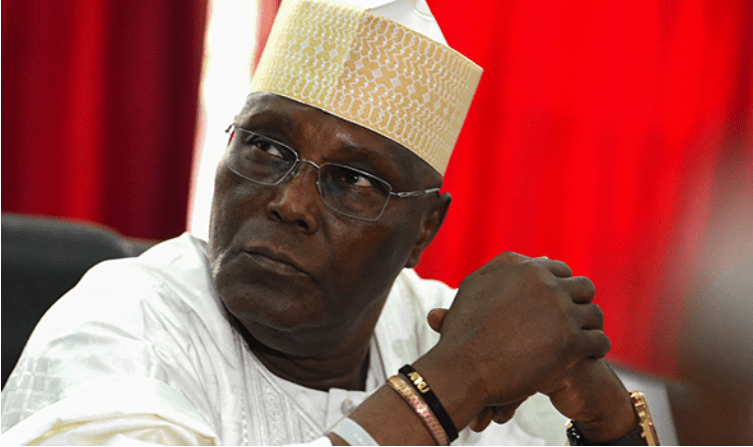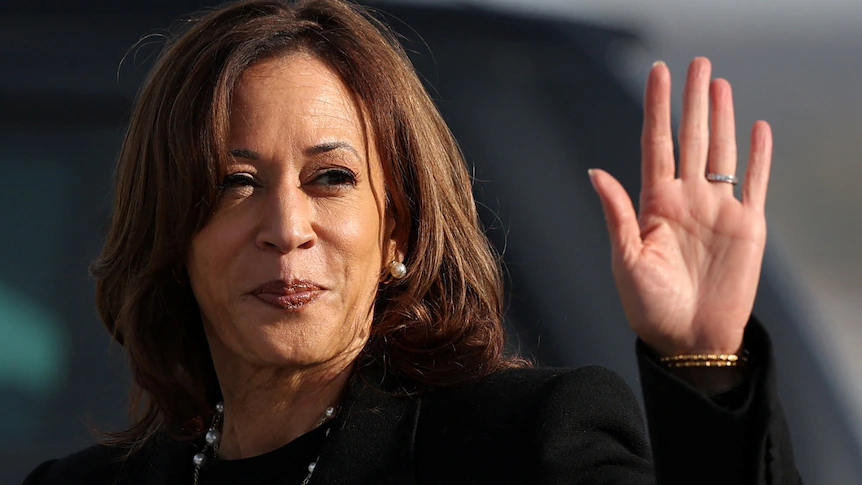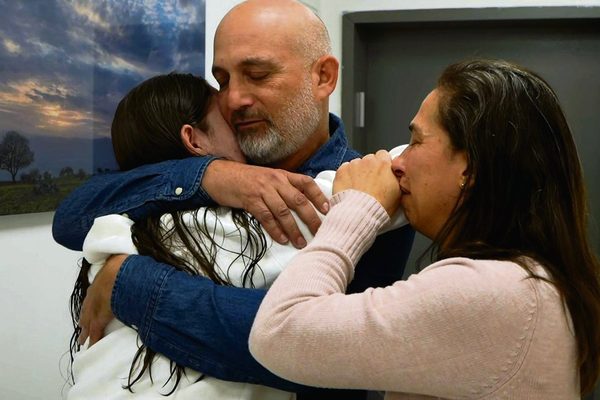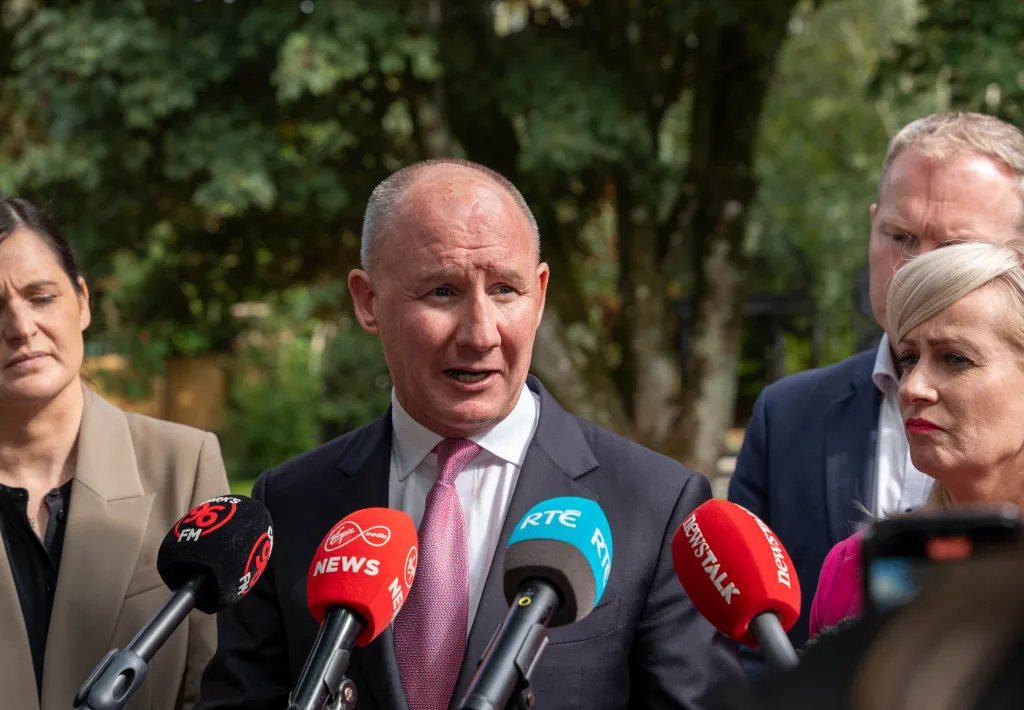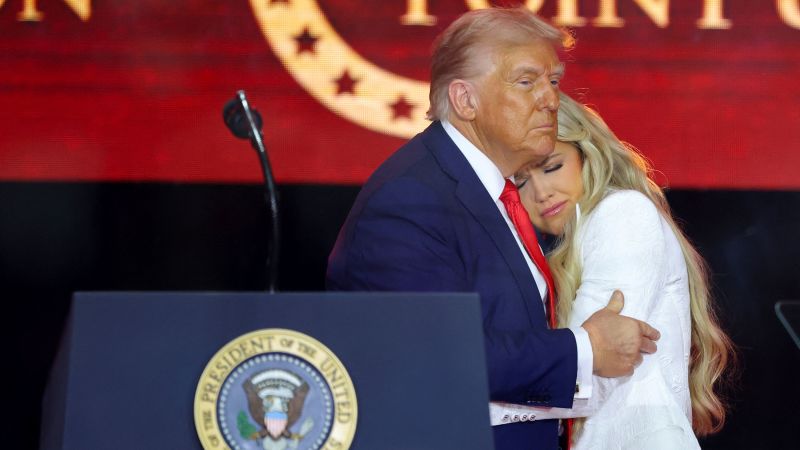
President Donald Trump wants the world to understand that Charlie Kirk’s killing will not temper him or induce him to mend the country’s divides.
Kirk’s memorial service in Arizona on Sunday was a remarkable hourslong eulogy for a life cruelly ended much too young, a glimpse at the future of the MAGA movement, and an unabashed religious revival.
It provided a moment that the country will long remember — an astonishing speech in which the assassinated 31-year-old’s widow forgave his killer.
But Trump bluntly and deliberately signaled that forgiveness and unity were for others, and that he’d use Kirk’s assassination to intensify his efforts to impose personal power even more ruthlessly.
He therefore confirmed that the immediate political consequence of Kirk’s shocking assassination will be more political discord.
The president described the Turning Point USA founder as “a missionary with a noble spirit and a great, great purpose.”
“He did not hate his opponents. He wanted the best for them,” Trump said. But in a moment of brazen self-awareness that epitomized his presidency, he then broke from the script. “That’s where I disagreed with Charlie. I hate my opponent.” Trump went on, “And I don’t want the best for them.” Trump seemed to almost apologize to Erika Kirk. But it was a moment when couldn’t stop himself. Or didn’t want to, so he could remain true to himself.
No one familiar with Trump’s conduct over the last decade will have been surprised that his speech that was awash in gratitude for Kirk was also laced with his own political preoccupations. At one point, he even previewed a White House announcement on autism on Monday.
Trump issued fresh warnings that he’d respond to Kirk’s assassination with a crackdown on “radical” left-wing groups he accuses of fomenting violence against conservatives. He lashed out at the media and progressives, promised to double down on crime crackdowns, and even returned to his false obsession that the 2020 election was stolen.
His tone jarred with much of the rest of the memorial service, with the exception of the equally bleak speech by his top policy adviser, Stephen Miller.
The country might have hoped for more from Trump. Many lawmakers are scared to campaign in public after Kirk’s death and other political violence, which has targeted the president and several Democrats in the past few years. Millions of people who didn’t support Trump feel threatened by his presidency.
But by ostentatiously stating how he differs from Kirk — who sought to engage his opponents respectfully and who prized free speech under the First Amendment — Trump made it clear he wanted Americans to perceive something about himself. He has never made a pretense of being a leader for all Americans, as most of his predecessors have — even if they didn’t follow through.
Trump’s frankness might have disappointed some of his fellow Republicans and many outside the party. But no one could say it was a surprise. Many conservatives likely dwelled most on his generous words about Kirk and have long made their peace with his personality.
A fascinating glimpse into the evolving MAGA movement
Until Trump spoke, Kirk’s memorial provided a fascinating MRI of the Make America Great Again movement and potential new directions for modern conservatism.
It showed exactly why Trump won the election last year. And it showed how much the loss of Kirk — and his skill in broadening the MAGA coalition and uniting disparate political strains into a winning movement — will be missed in the years ahead.
While the pain of Kirk’s loss was evident among tens of thousands of mourners, there was also a sense that his followers are gathering, as Turning Point USA steels itself to become a mightier force forged from the martyrdom of its founding hero.
Most interestingly, this was a rare MAGA event involving Trump that was not exclusively about the president. It therefore hinted at the potential evolution of populist conservatism after the president has left the political stage.
Two eulogists, Vice President JD Vance and Secretary of State Marco Rubio, seemed especially aware of the political moment. Both showed humanity and generosity in their tributes. Each offered some of their most public testimony to their own Christianity. It could have been the shock of Kirk’s death. But it also looked like a gesture to intensifying religiosity, particularly among male GOP voters. It was hard not to see the outlines of a possible 2028 GOP presidential race in their speeches.
Vance credited Kirk with raising him from obscurity to the vice presidency and said his friend transformed conservatism in his own time. “For Charlie, we will rebuild this United States of America to greatness. For Charlie, we will never shrink, we will never cower, and we will never falter, even when staring down the barrel of a gun,” Vance said.
Rubio fused his more traditional conservatism with a spiritual tone not seen a decade ago when he was first seen as a potential president. “He mattered,” he said of Kirk. “And he will matter more than he ever has before,” Rubio said, like Vance, nominating Kirk, in death, as a guiding light of conservatism’s future path.
And Erika Kirk, summoning touching courage, emerged as a future star of the conservative movement in vowing to lead Turning Point in honor of her husband. She said the world “needs a group that will point young people away from the path of misery and sin.”
She added, “I promise you today, every part of our work will become greater.”
Kirk helped Trump win. But what is next?
Many speakers explained just how important Kirk had been to Trump’s 2024 election win. And the event began to seem like one giant theatrical personification of the expanded coalition that sent him back to Washington.
Susie Wiles, the White House chief of staff, praised Kirk’s trip to liberal college campuses and said he’d brought young people into the movement and “made them know they belonged.”
Health and Human Services Secretary Robert F. Kennedy Jr., who carries his own distinct political appeal with a pocket of vital voters, credited Kirk with linking him up with Trump. It’s a mark of the country’s political transformation that Kennedy, the son of assassinated 1968 presidential candidate Bobby Kennedy, was there at all after breaking with his Democratic tribe.
But now that Kirk is gone, the MAGA movement and Turning Point face complex questions.
If Kirk was as valuable as everyone said — and post-election evidence suggests he did indeed bring key voters to Trump — who can step into his shoes? This is especially pressing for Republicans in the 2026 midterms when his hordes of younger voters are likely to be less engaged than in a presidential race. Vance or Rubio might need to work out a longer-term answer.
And Trump’s sometimes-bitter speech pointed to another conundrum. Wouldn’t the country prefer the kind of respectful political debate Kirk was eulogized for Sunday over the president’s deepening authoritarianism?
Many progressives abhor Kirk’s political positions. He was a hardcore MAGA enthusiast with orthodox positions on guns and abortion who was responsible for his own share of inflammatory speech. Democrats would love to find someone with half as much skill as Kirk at engaging young voters, opening new political constituencies, and bridging inter-party divides.
“You ran a good race, my friend. I love you. We have got it from here,” Vance said at the end of his eulogy.
Whether that last bit is true will have huge consequences on the future of American politics.
